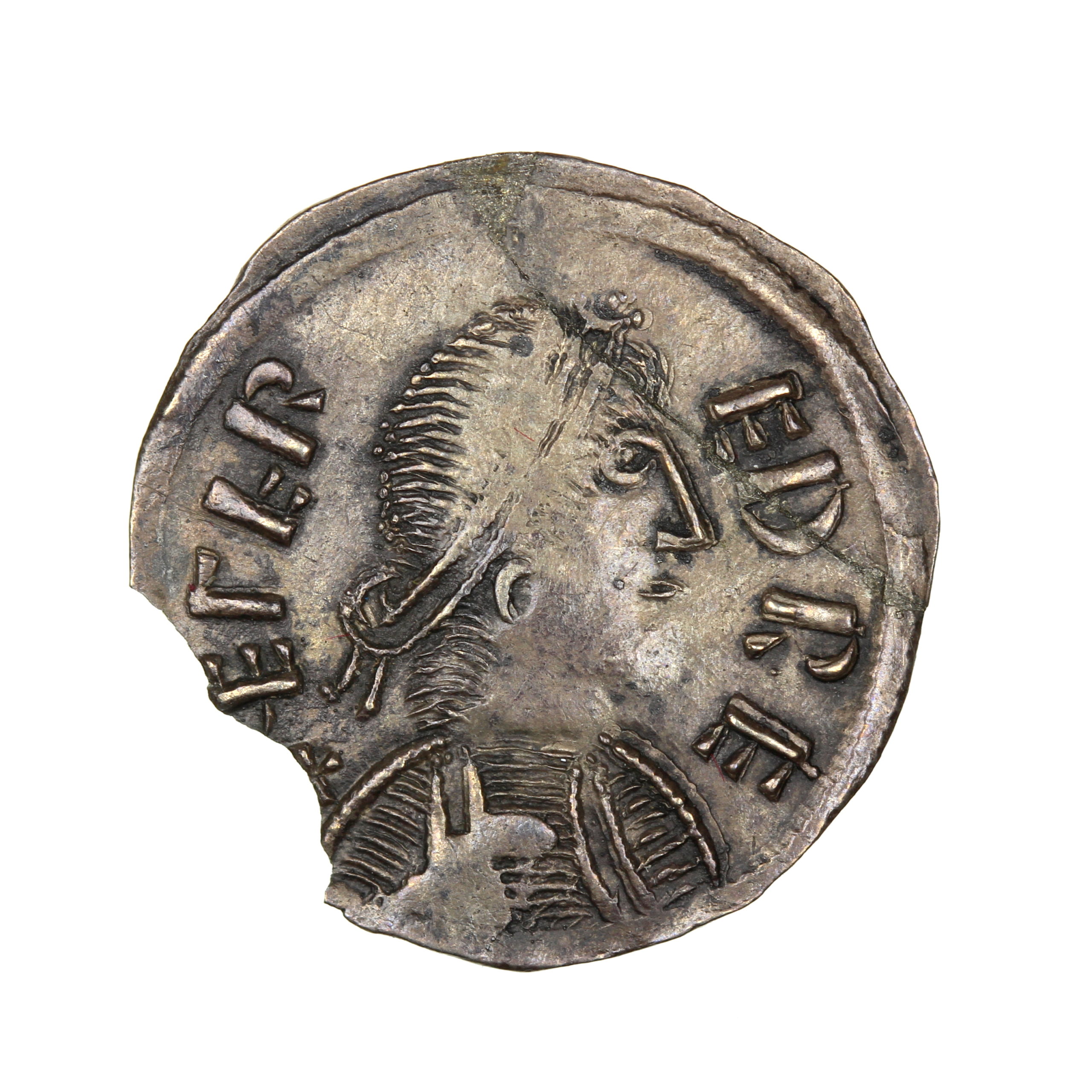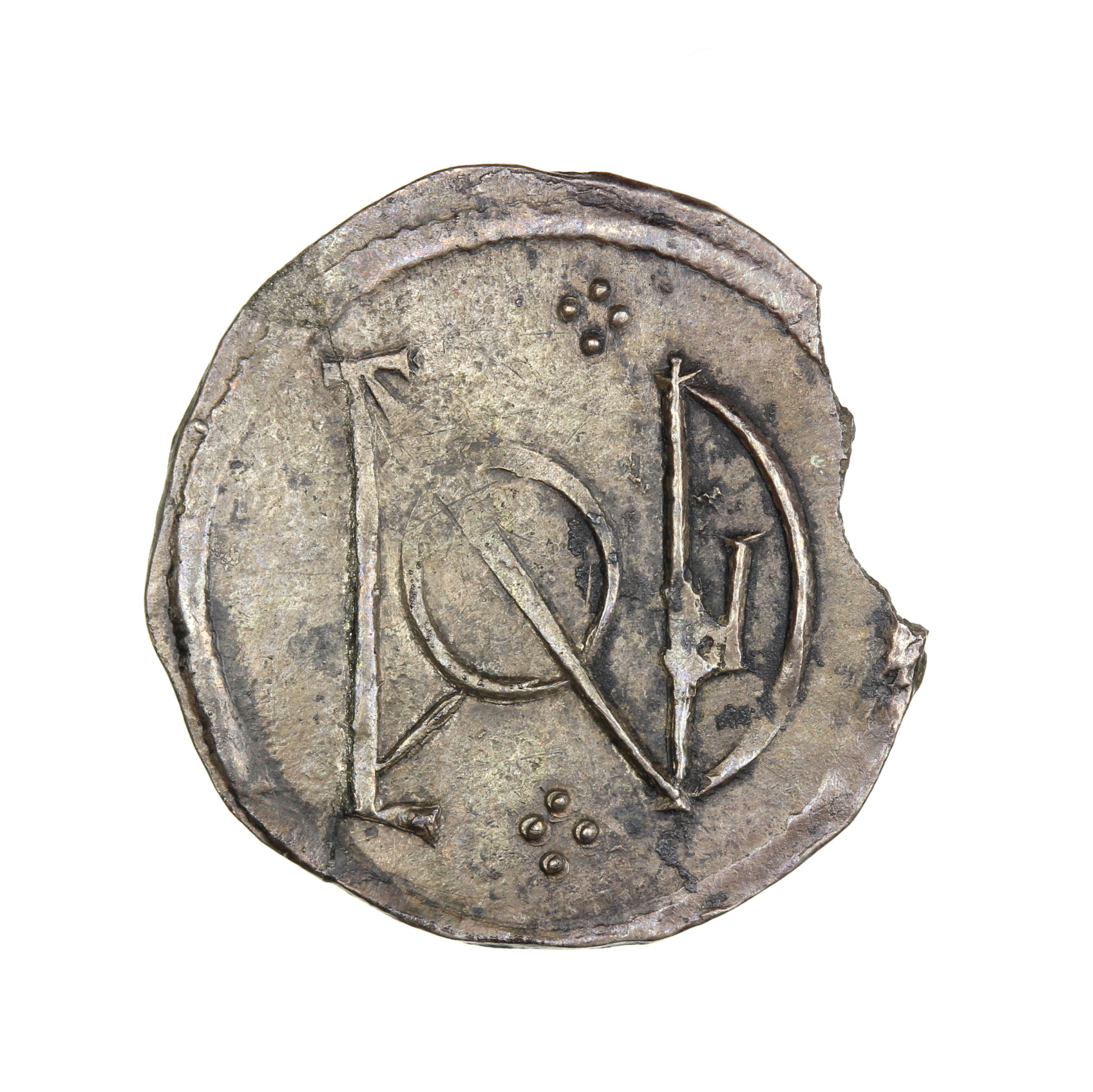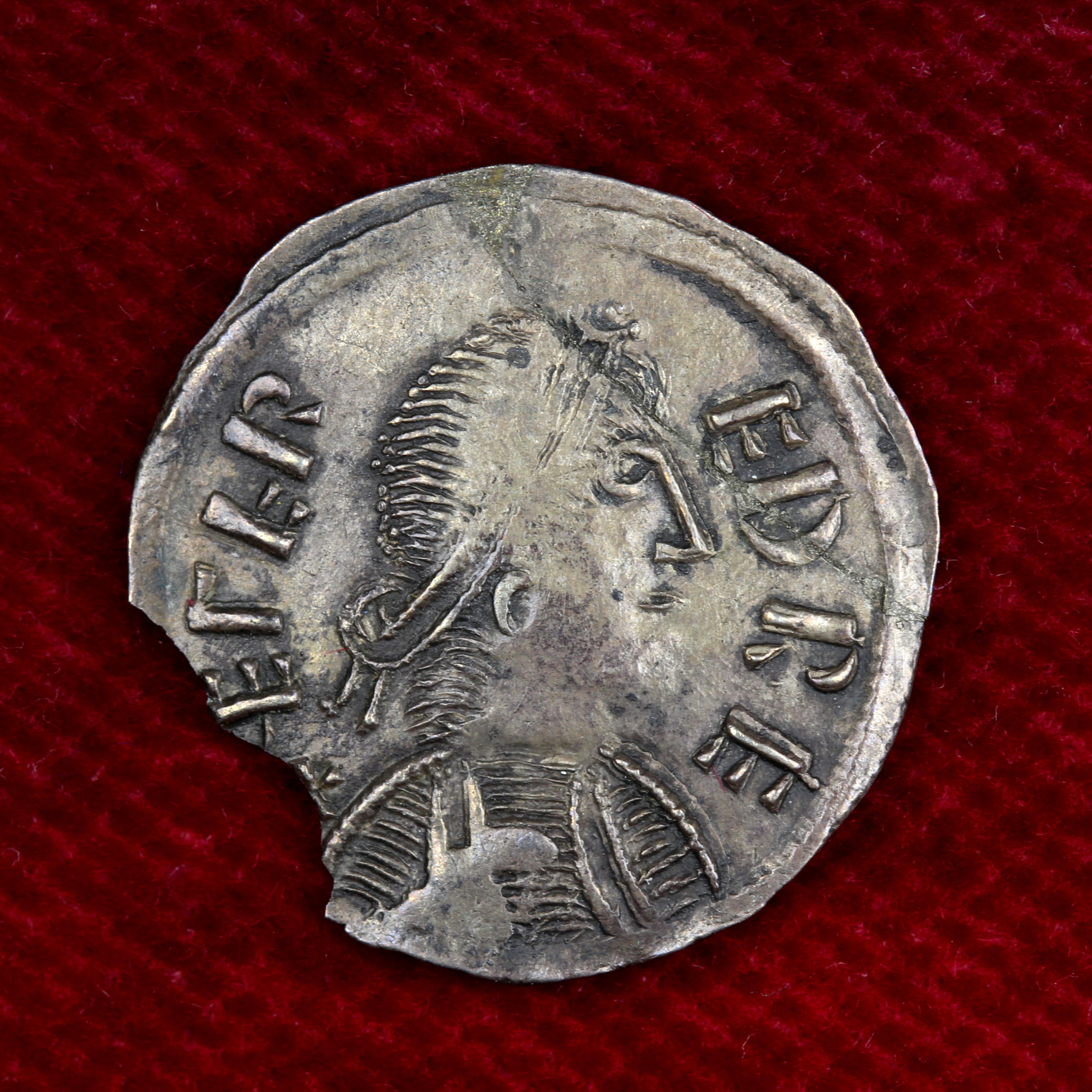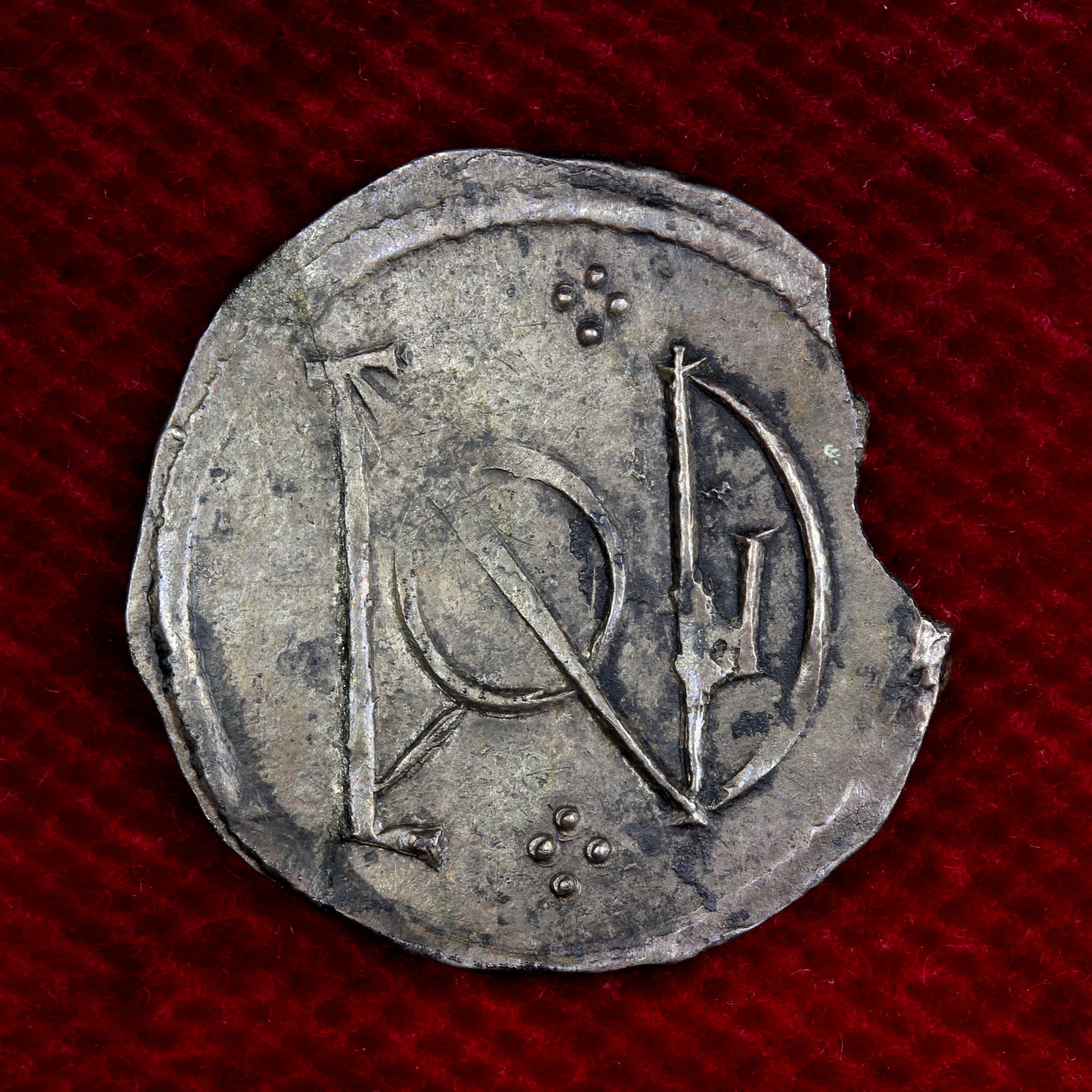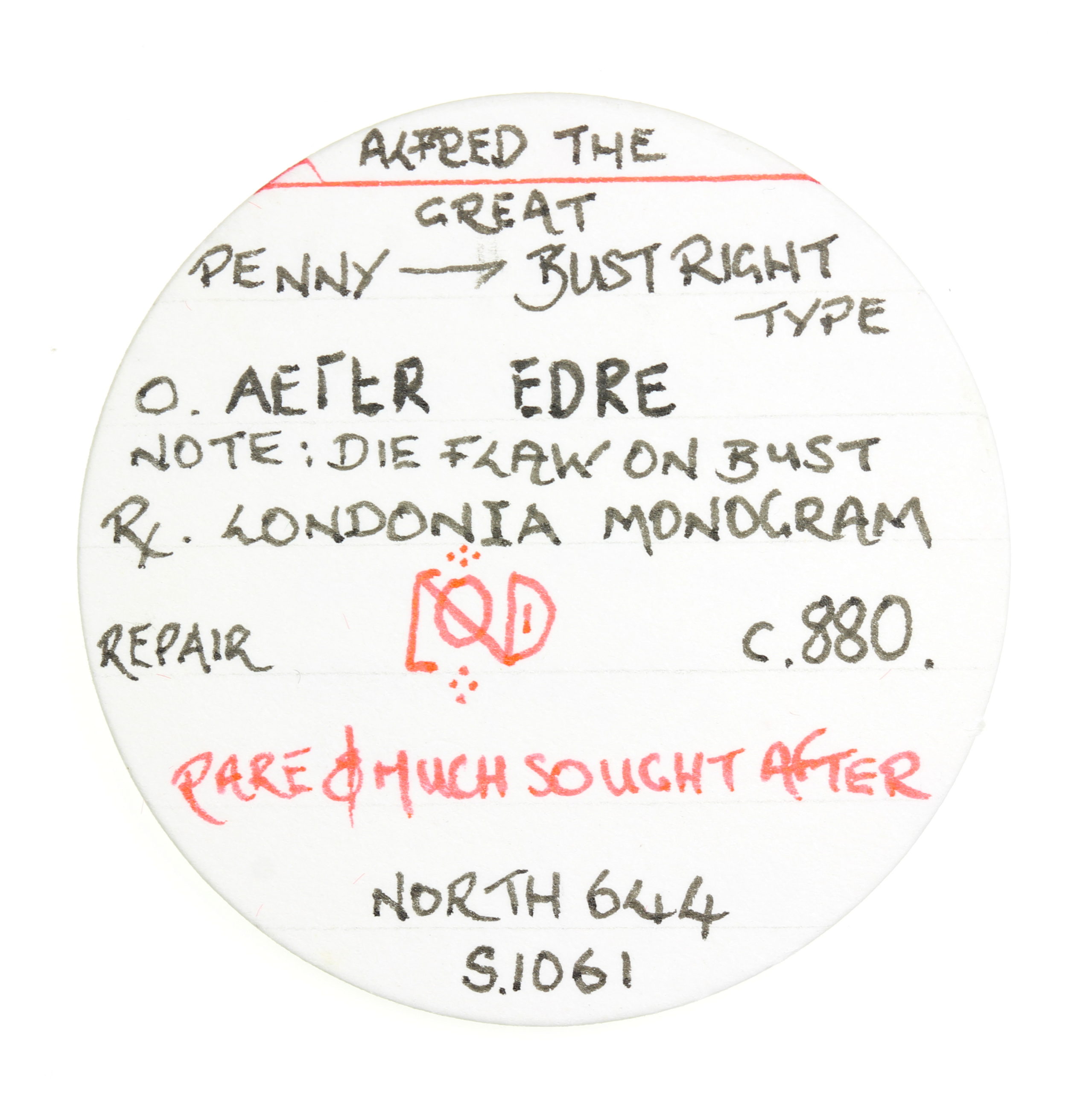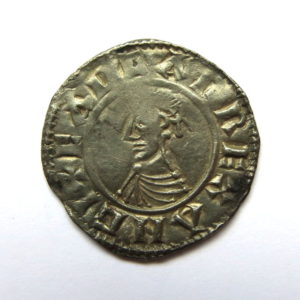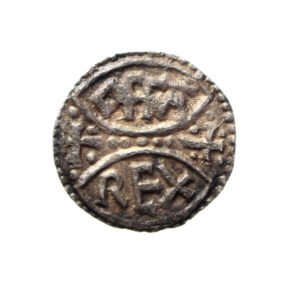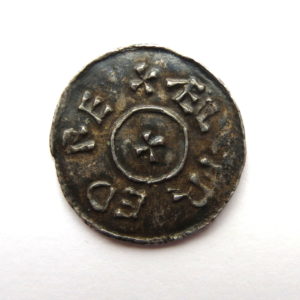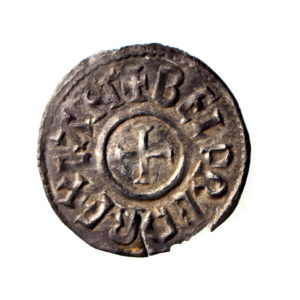Kings of Wessex Alfred the Great AD 871-899 Silver Penny
£3,500.00
Kings of Wessex Alfred the Great AD 871-899 Silver Penny, Bust / LONDONIA (repaired)
+AELF RED RE (LF inverted); diademed bust right.
London Monogram; quatrefoil of pellets above and below.
Same obv. die as SCBI Glasgow 577 and Norweb 142.
S1061, 19mm, 1.43g.
Wm McKay comments: I think your coin and the Bloomsbury coin in the 2006 sale catalogue may be different, but I cannot be sure of this without seeing it. I have added a note to the Corpus to this effect and taken the Bloomsbury provenance out of the entry for your coin. My suspicion is both (if they are verifiably different) may be from Thames foreshore or Thames Exchange spoil finds hence the condition and to have two coins of the same dies is not unusual with the other London finds dated to c.883.
ex. J Mann 2013
Ex Stacks, Bowers and Ponterio, Aug 2013
Broken & repaired, with small infill at 12 o’clock, (obverse)
Alfred (871-899)– Fifth and youngest son of Æthelwulf, Alfred ascended to the throne of Wessex at an unenviable time. The kingdom had just suffered several crippling defeats at the hands of the Vikings, standing virtually alone against the invaders following the subjugation of both Northumbria and East Anglia. Initially forced to pay them off to gain the vital breathing space he needed, the defining moment in Alfred’s reign came in 878 – when he was driven from his royal vill at Chippenham. Fleeing to the Somerset marshes, he proceeded to wage a desperate guerrilla war. Emerging later that year to rally his forces and defeat the Vikings at the Battle of Edington, Alfred was able to stalemate them into accepting grants of territory in exchange for leaving his own holdings alone. Perhaps the most famous Anglo-Saxon king to ever have lived, Alfred’s reign is well known in popular history – although it is likely he never ‘burned the cakes’. His later rule was a time of reform, not just militarily (he is arguably the founder of the Royal Navy) – but also economically and in the fields of both law and education. Styling himself as ruling over the entire Anglo-Saxon peoples, Alfred’s reign marks the beginnings of England becoming a united realm instead of a broader geographical entity populated by small kingdoms.
Out of stock

